| |  | | | Qatar's Deadly Game; Iran: Mythology, Protests, and Poverty By Winfield Myers ● Sep 17, 2025 Smart Brevity® count: 10 mins...2702 words Jonathan Spyer warns that Qatar is "playing arsonist and firefighter" in its dangerous ploy to host and support Hamas terrorists while Western leaders ignore this reality to lavish praise on it. After Israel through its strike on Doha demonstrated that it will no longer play that game, Spyer urges Western powers to follow the Jewish state's lead. Michael Rubin writes that Israel's action brings a "moral clarity" to dealing with Qatar and urges the Gulf state's leaders to end their country's sponsorship of terror or risk becoming "Damascus rather than Dubai." We follow with an in-depth look at Iran via eight articles. In a deep dive into Iran's history, Saeid Golkar explains the Islamic Republic's use of pre-Islamic mythology to bolster its legitimacy—and how Iranians turn these myths back on their tormentors. Mardo Soghom, in two articles, analyzes the protests on the anniversary of Mahsa Amini's murder and Supreme Leader Ali Khamenei's failures in this time of crisis. Other authors featured include Lazar Berman, Umud Shokri, Dalga Khatinoglu, and Ahmad Hashemi. | | Playing Arsonist and Firefighter: How the West Is Falling for Qatar's Deadly Game 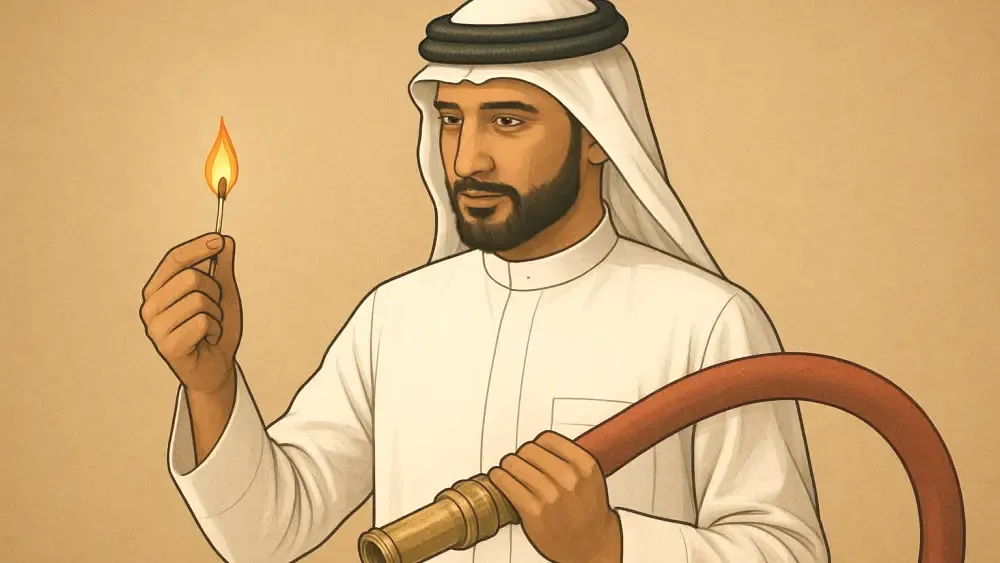 By: Jonathan Spyer Amidst the heated discussion over Israel's assassination attempt on Hamas leaders in Qatar, the silence about Doha harboring these terrorists is deafening. Worse still, while condemning Israel for striking those who orchestrated October 7, Western leaders are lavishing praise on the Gulf emirate as if it were a trustworthy ally rather than a funder of global Islamism and terror. Why it matters: Qatar funds global Islamism, undermining Western security and stability. The big picture: Qatar's influence in the U.K. is pervasive, owning critical infrastructure and shaping policy through investments. -
Its funding of British universities and Islamic centers spreads corrosive ideology. -
With a new Middle East emerging, the U.K. and its allies need to urgently reconsider their relationships with Qatar or they risk being left behind and becoming ever more irrelevant. They would do well to remember that Qatar's legitimacy is dependent upon the West, and that it was their short-sighted thirst for Qatari gold that led us to this mess. What's next: The West must break its dependency on Qatari investments to stay relevant in the new Middle East. To read the full article, click here. | | The Problem with Doha: Why Israel's Hamas Attacks Outraged Qatar 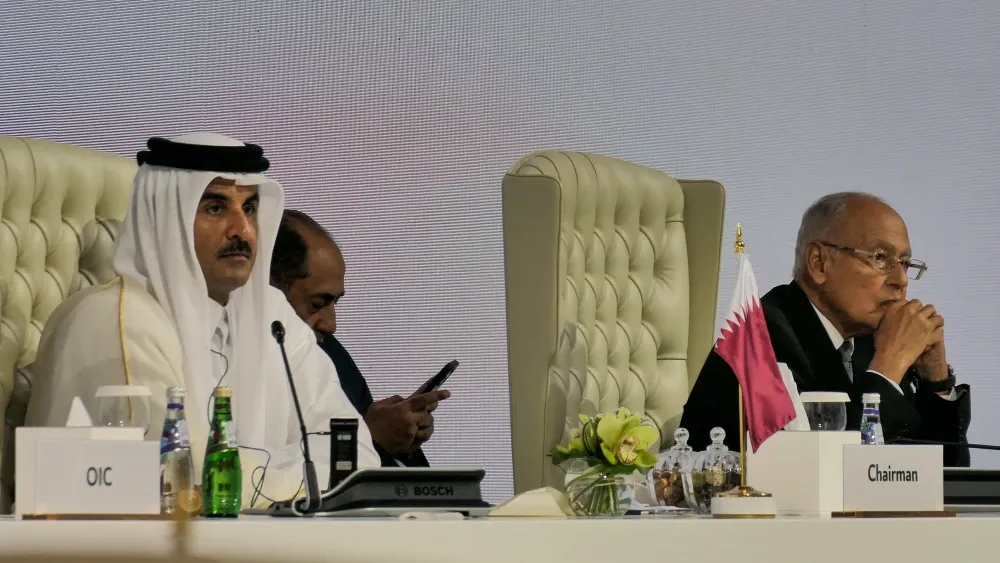 By: Michael Rubin Amidst Qatar's support for Hamas, Israel's September 9, 2025, strike on a Doha villa housing Hamas leaders was met with outrage by Qatar, with Prime Minister Sheik Mohammed bin Abdulrahman al-Thani demanding retaliation "from the whole region" against Israel. Why it matters: Qatar's financial backing for Islamist groups fuels instability, yet Western leaders, like Australia's Foreign Minister Penny Wong, condemn Israel's actions instead. The big picture: Qatar's influence affects global diplomacy, with investments swaying policies in countries like Australia. -
Qatar's financial backing for Islamic centers and educational institutions spreads its extremist ideology, affecting global perceptions and security. -
By any objective measure, Qatar also crosses a threshold that qualifies it for designation as a state sponsor of terror. What's next: Western leaders, including those in Australia, must confront Qatar's dual role, leveraging diplomatic and economic tools to curb its support for terror. To read the full article, click here. | | ICYMI: September 17, 2025 | Israel Insider with Ashley Perry What are the implications of Israel's ground operations in Gaza City? Ashley Perry is an advisor to the Middle East Forum's Israel office. He served as adviser to Israel's minister of foreign affairs and deputy prime minister in 2009-15, and has also worked with Israel's Ministers of Intelligence, Agriculture and Rural Development, Energy, Water and Infrastructure, Defense, Tourism, Internal Security, and Immigrant Absorption and as an advisor to The Negev Forum. Originally from the U.K., he moved to Israel in 2001. He holds a B.A. from University College London and an M.A. from Reichman University (IDC Herzliya). To watch the full podcast episode, click here. | | The Stories That Shed Light on Power in Iran  By: Saeid Golkar In Iran, myths and religious narratives both empower the regime and fuel resistance movements. Why it matters: The regime uses the religious myth of Ashura, commemorating Imam Hussein's martyrdom in 680 at the Battle of Karbala, to legitimize its authority and cast opponents as modern Yazids, representing tyranny. The big picture: Pre-Islamic myths such as Zahak, a tyrant from Ferdowsi's "Shahnameh" ("Book of Kings") who feeds serpents on his shoulders with the brains of young men, are revived by dissidents to symbolize resistance against tyranny, portraying Supreme Leader Ali Khamenei as a modern-day Zahak. Arash the Archer: A legendary figure in Iranian mythology, Arash Kanmadar symbolizes heroic self-sacrifice and national unity. He is known for ending a war by shooting an arrow across a vast distance to set a new border. Cultural narratives and power: Myths create a hidden grammar that connects culture to political action, shaping Iran's regime and resistance. What's next: Understanding the role of mythology in Iran's political landscape is crucial for policymakers and scholars analyzing the regime's stability and opposition strategies. To read the full article, click here. | | New Protests Erupt in Iran on Anniversary of Mahsa Amini's Murder 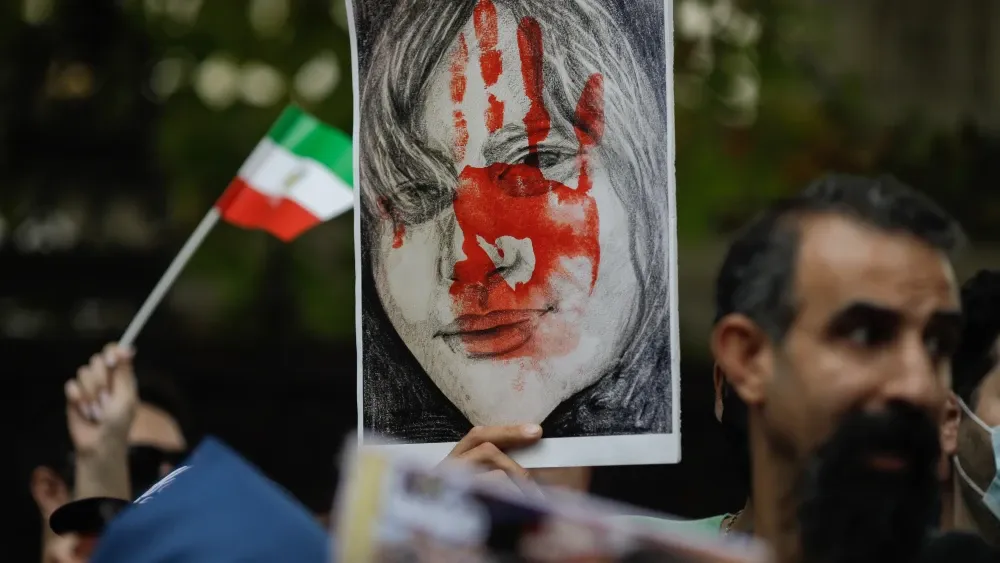 By: Mardo Soghom Anti-regime protests erupted on September 16, 2025, marking the third anniversary of Mahsa Amini's death at the hands of police who arrested her for not covering her hair properly, a symbol of resistance against the Islamic Republic. Why it matters: The anniversary coincides with heightened tensions following Israel's airstrikes, challenging the regime's military credibility and amplifying public dissent. The big picture: The regime appears nervous, staging public events in Tehran to project normalcy while simultaneously executing dissidents like Babak Shahbazi under dubious charges. What's next: The upcoming European E3 (Britain, France, and Germany) sanctions threaten to exacerbate Iran's economic woes, further fueling unrest. To read the full article, click here. | | Iran's 'No Peace, No War' Dilemma Exposes Khamenei's Failed Calculus 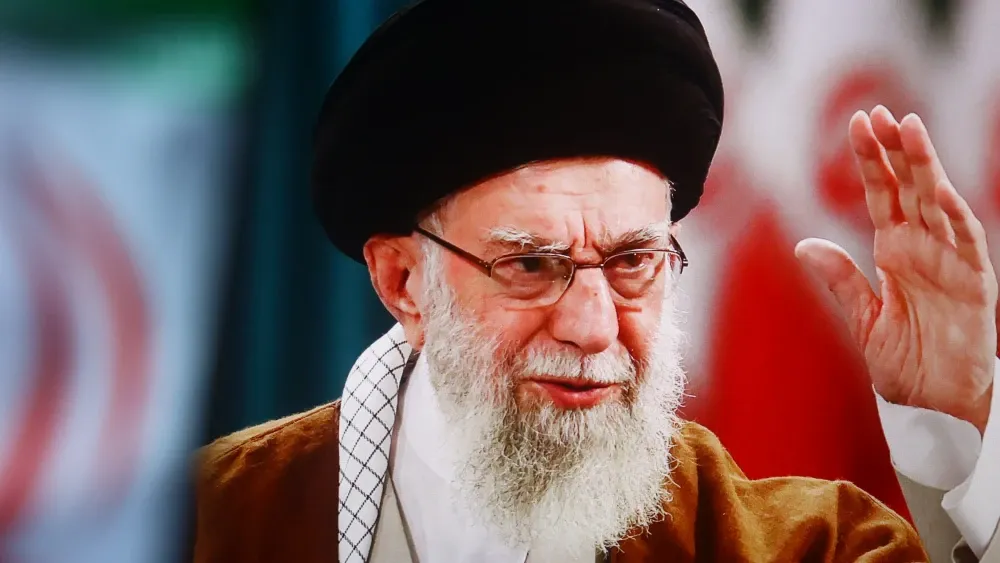 By: Mardo Soghom Supreme Leader Ali Khamenei admits Iran is stuck in a "no peace, no war" scenario after crippling Israeli and U.S. strikes. Why it matters: Iran's threats to exit the Non-Proliferation Treaty could deepen its diplomatic isolation and undermine any chance of a Western agreement. -
Hardliners failed to pass a resolution to abandon the treaty, using it as a bargaining tactic amid E3's (Britain, France, and Germany) reimposition of U.N. sanctions. The big picture: Iran's internal political dynamics are fraught with tension, as President Masoud Pezeshkian's administration grapples with paralysis and ineffective governance. Internal challenges: Economic hardship exacerbates political instability, as runaway inflation and shortages strain public patience. What's next: Iran's negotiations with the International Atomic Energy Agency over nuclear inspections remain contentious, with unresolved disputes over inspector access. -
The Islamic Republic now muddles through the most serious crisis of its forty-six-year history. Its military weakness stands exposed to the world. -
It has lost much of its regional influence and credibility at home. It survives day-to-day by selling cut-rate oil to China, clinging to the hope that it can somehow extract a favorable deal from the West and avert another Israeli strike. It is not a bet that will likely pay off. To read the full article, click here. | | After Israeli, U.S. Strikes, Europeans Hope Snapback Threats Push Iran to Tougher Nuclear Deal 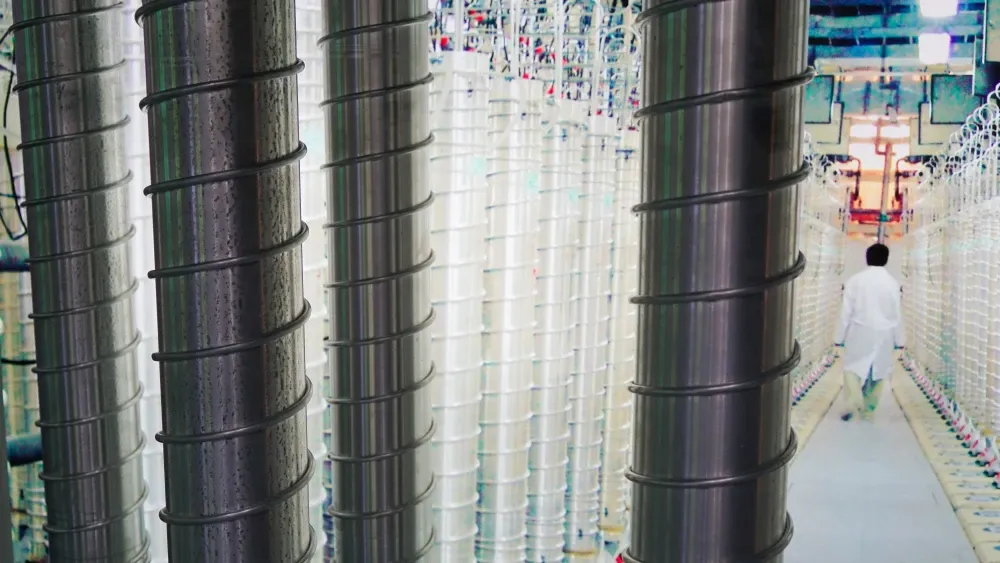 By: Lazar Berman In a decisive move, Britain, France, and Germany have triggered the "snapback mechanism" to reinstate U.N. sanctions on Iran, citing non-compliance with the 2015 nuclear deal. Why it matters: This step is crucial in the diplomatic push to curb Iran's nuclear ambitions, despite Tehran's resistance and ongoing cooperation with Moscow and Beijing. The big picture: The Joint Comprehensive Plan of Action's (JCPOA) collapse has shifted focus to tougher negotiations, with the E3 (Britain, France, and Germany) and Washington aiming for enhanced inspections and stricter limits on Iran's nuclear activities. Strategic challenges: Tehran's potential withdrawal from the Non-Proliferation Treaty poses a significant threat to regional stability and could escalate tensions. What's next: Diplomacy remains a critical avenue, but the path to conflict is also open if Iran persists with its nuclear ambitions and threats against international security. To read the full article at the Times of Israel, click here. | | The Iran Prosperity Project's Energy Goals Amid Constraints and Risks 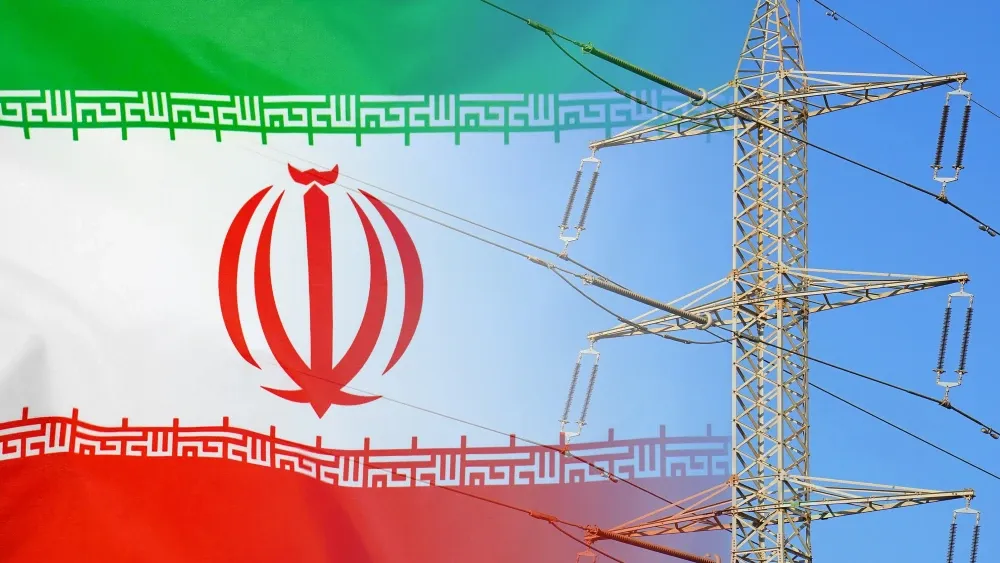 By: Umud Shokri Reza Pahlavi's Iran Prosperity Project aims to rebuild Iran post-Islamic Republic, but the reality of Iran's systemic failures looms large. Why it matters: Despite holding 17 percent of global natural gas reserves, Iran squanders its potential through rampant corruption, crippling sanctions, and inept management. -
The nation endures gas shortages, blackouts, and a crumbling energy infrastructure, symptomatic of broader governance failures. The big picture: The project ambitiously plans for energy reform and economic diversification, yet fails to address the entrenched corruption and military influence that stifle progress. Challenges ahead: Iran's governance is marred by inefficiency and resistance to change, particularly from power networks tied to military interests. What's next: Without transparent, actionable strategies and international cooperation, Iran's energy sector will remain a casualty of its own making. -
The Iran Prosperity Project's energy plan, like the Islamic Republic's itself, aims high but will falter due to Iran's complexity, corruption, and inefficiency. To read the full article, click here. | | Iran Suffers Sharp Decline in Revenues Amidst Its War with Israel 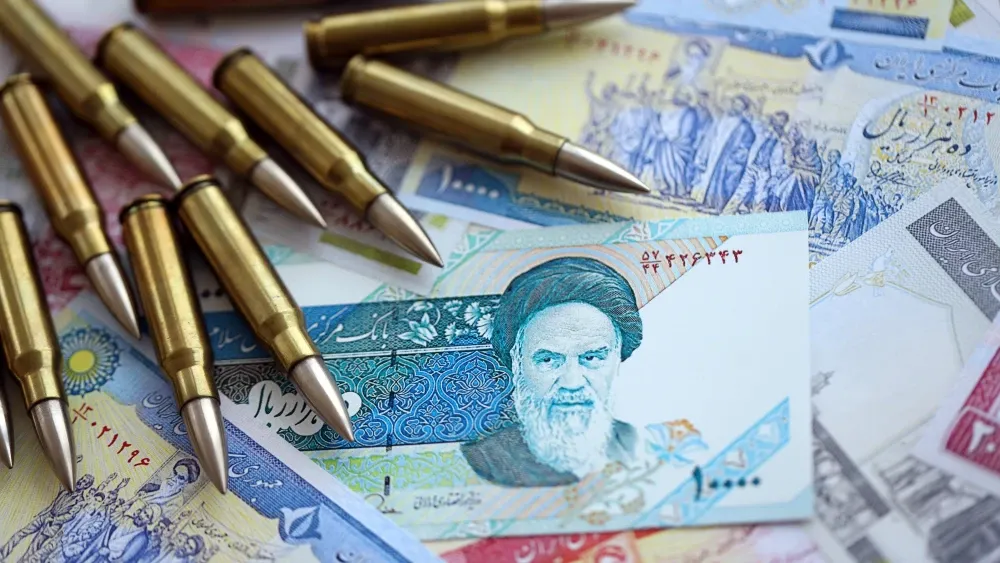 By: Dalga Khatinoglu New insights into the Twelve-Day War with Israel reveal the precarious state of Iran's economy, exacerbated by the conflict. Why it matters: Despite avoiding major civilian infrastructure, the war's economic shockwaves have severely impacted Iran. The big picture: Iran's economic woes are compounded by chronic budget deficits, soaring inflation, and a currency crisis. Challenges ahead: The looming "snapback mechanism" threatens to reinstate U.N. sanctions, further isolating Iran economically. What's next: With Saudi Arabia's GDP now three times larger than Iran's, the leadership must confront its failing strategy as economic pressures mount. To read the full article, click here. | | The Narrowband Communications and Security Implications of Iran's Space Drive 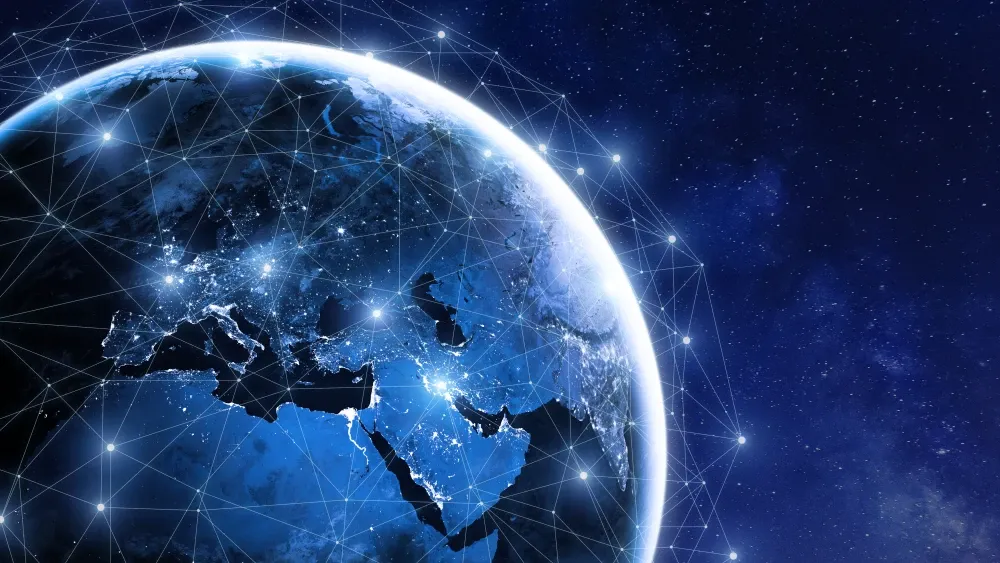 By: Umud Shokri Iran plans to launch twenty satellites under the "Shahid Soleimani Constellation" by 2025, aiming to expand Internet of Things services and bolster national space capabilities. Why it matters: The constellation not only enhances Iran's technological autonomy but also serves dual military and civilian purposes, heightening regional tensions. The big picture: Iran's cooperation with Russia in space technology underscores its "Look East" strategy, circumventing Western sanctions. Geopolitical consequences: The project strengthens Iran's diplomatic clout and coordination with proxies, concerning neighboring states worried about increased regional influence. Strategic implications: The space program acts as a symbol of national pride but raises the risk of escalation amid existing regional hostilities. -
The fact that satellite launches occur in conjunction with heightened hostilities, Israeli strikes on Iranian missile installations, or regional tensions implies that they also serve as strategic signals, increasing the possibility of a wider escalation. To read the full article, click here. | | Iran's War on Its Jewry in the Aftermath of a Conflict with Israel 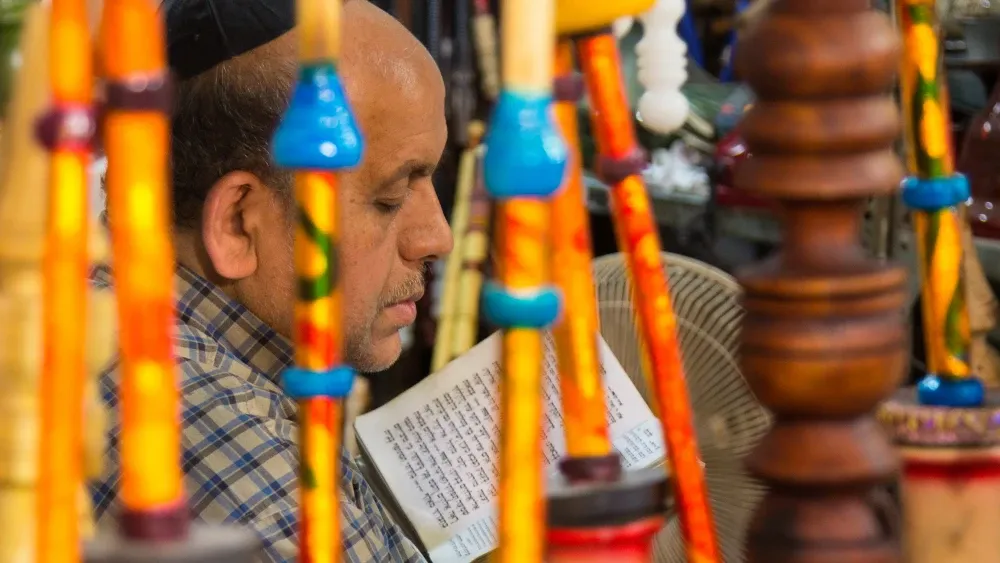 By: Ahmad Hashemi In the wake of its Twelve-Day War with Israel, Iran's regime has intensified its crackdown on the country's Jewish community, accusing them of espionage. Why it matters: The regime's actions highlight its use of antisemitic tropes to vilify Israel and scapegoat minorities within Iran. The big picture: Tehran exploits its Jewish population for propaganda while forcing them to participate in anti-Israel demonstrations. Strategic use of antisemitism: Iranian officials perpetuate conspiracy theories about Jewish power, further fueling antisemitism and justifying the regime's aggressive stance. What's next: While Tehran's treatment of its Jewish population will worsen, the regime is unlikely to persecute so completely that it would spark a mass exodus, for it still benefits from its ability to use Jews as living museum exhibits to maintain a facade of diversity and tolerance to both domestic and international audiences. To read the full article, click here. | | | | | Thank you for relying on the Middle East Forum for up-to-date analyses of the region. If you enjoyed this issue of the MEF Dispatch, please forward it to a friend. We invite you to use the comments feature to let us know your thoughts on the Dispatch and the issues we cover. Sincerely, Winfield Myers
Managing Editor, Middle East Forum
Director, Campus Watch | | | | Was this edition useful?  

Your email will be recorded and shared with the sender |        MEF, an activist think tank, deals with the Middle East, Islamism, U.S. foreign policy, and related topics, urging bold measures to protect Americans and their allies. Pursuing its goals via intellectual and operational means, the Forum recurrently has policy ideas adopted by the U.S. government.
Copyright © 2024 Middle East Forum, All rights reserved.
Our mailing address is:
Middle East Forum
1650 Market Street, Suite 3600
Philadelphia, PA 19103 | | | | | Powered by 
| | This email was sent by Middle East Forum via Axios HQ | | | |
0 коммент.:
Отправить комментарий